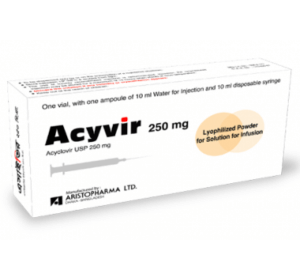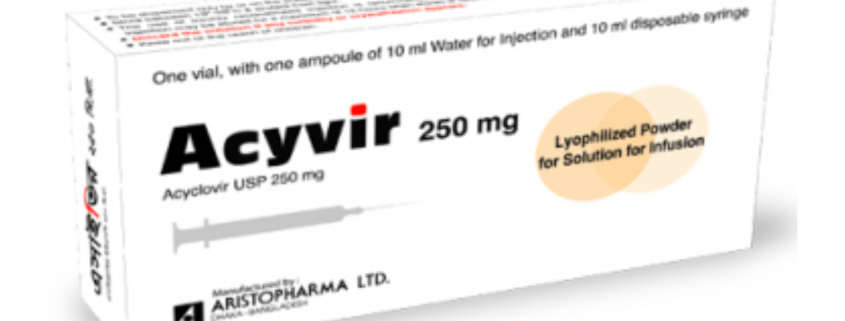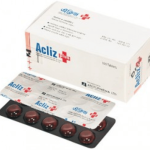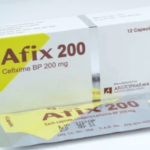Acyvir Injection

Acyvir Injection Acyclovir
Indications
- Herpes Simplex infections in immunocompromised patients
- Initial and recurrent mucosal and cutaneous Herpes Simplex (HSV-1 and HSV-2) infections in immunocompromised patients
- Severe initial clinical episodes of herpes genitalis in immunocompetent patients
- Herpes Simplex encephalitis
- Neonatal herpes simplex virus infections and varicella-zoster (shingles) infections in immunocompromised patients.
Dosage & Administration
- For children and neonates, where it is advisable to keep the volume of infusion fluid to a minimum, it is recommended that dilution is on the basis of 4 ml reconstituted solution of Acyvir 250 mg Injection or 2 ml reconstituted solution of Acyvir 500 mg Injection (100 mg Acyclovir) added to 20 ml of infusion fluid.
- For adults, it is recommended that infusion bags containing 100 ml of infusion fluid are used, even when this would give an Acyclovir concentration substantially below 0.5% w/v. Thus one 100 ml infusion bag may be used for any dose between 250 mg and 500 mg Acyclovir but a second bag must be used for doses between 500 mg and 1000 mg. When diluted in accordance with the recommended schedules, Acyclovir IV for Infusion is stable for up to 12 hours at room temperature. Reconstituted or diluted solution should not be refrigerated.
Side effects
Most common side effects are headache, nausea, diarrhea, rash and phlebitis.
Description
Acyclovir is a synthetic purine nucleoside analogue which is active against herpes simplex virus types 1 (HSV-1), 2 (HSV-2), and varicella-zoster virus (VZV). The inhibitory activity of acyclovir is highly selective due to its affinity for the enzyme thymidine kinase (TK) encoded by HSV and VZV. This viral enzyme converts acyclovir into acyclovir monophosphate, a nucleotide analogue. The monophosphate is further converted into diphosphate by cellular guanylate kinase and into triphosphate by a number of cellular enzymes. Acyclovir triphosphate stops replication of herpes viral DNA. This is accomplished in three ways: 1) competitive inhibition of viral DNA polymerase, 2) incorporation into and termination of the growing viral DNA chain, and 3) inactivation of the viral DNA polymerase.



